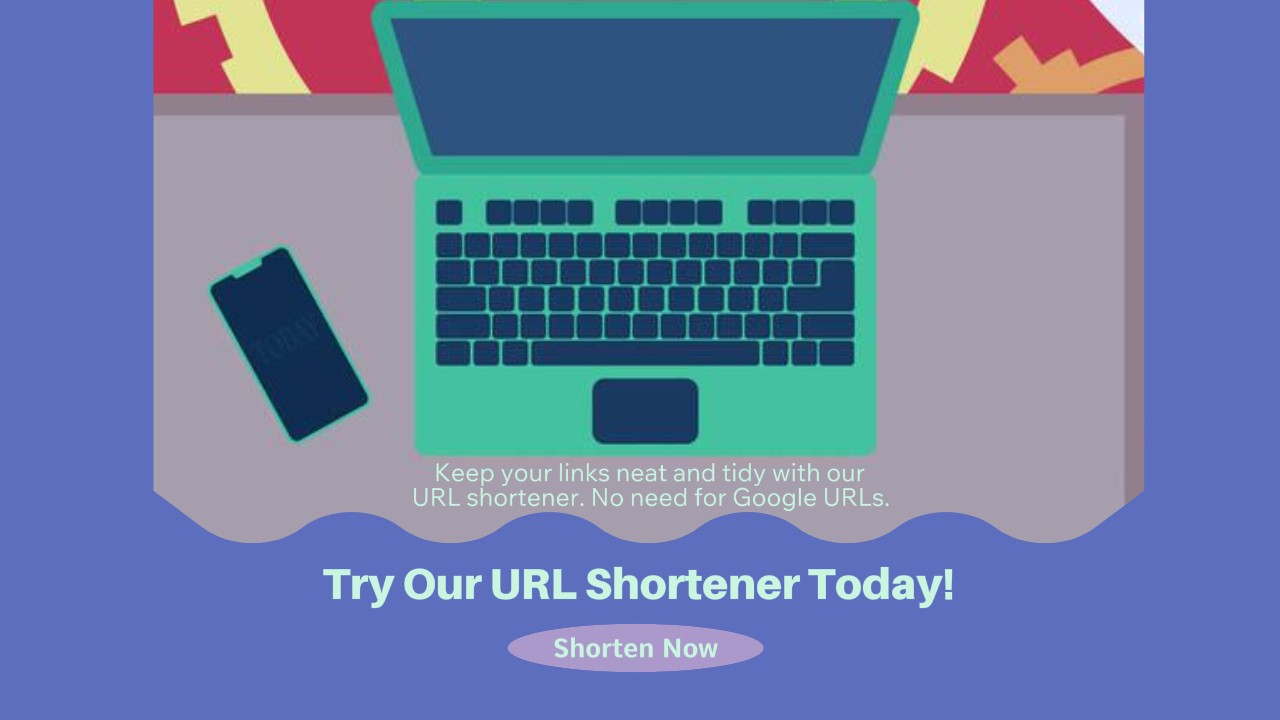What is a Link Shortener?
In this article, we'll explore about What is a Link Shortener? . A link shortener, also known as a URL shortener, is an online tool that transforms long URLs into shorter, more manageable links. These shortened URLs are easier to share, remember, and use on various digital platforms. Despite their compact size, these links redirect users to the original, longer URL seamlessly. The concept of link shortening has revolutionized the way we share content online, providing numerous benefits for both personal and professional use.
1. The Evolution of Link Shorteners
The advent of link shorteners can be traced back to the early 2000s when sharing lengthy URLs became cumbersome, especially on character-limited platforms like Twitter. TinyURL, launched in 2002, was among the first services to offer URL shortening. Its simplicity and effectiveness quickly gained popularity, leading to the emergence of various other services like Bitly, URLty, and Google's now-defunct URL shortener. Over time, these tools have evolved to offer additional functionalities beyond mere shortening, such as analytics, custom aliases, and branded links.
Early Innovations and Challenges
Early URL shorteners were simple and primarily focused on making long URLs more manageable. However, they faced challenges such as scalability and security. As the internet grew, the demand for more robust and secure link shorteners increased. This led to innovations in link management, including the introduction of features like link expiration, password protection, and integration with other digital marketing tools.
2. How Link Shorteners Work
The mechanics of link shorteners are straightforward. When a user inputs a long URL into a shortening service, the tool generates a unique, shortened URL. This new link typically includes a base domain followed by a random or customizable string of characters. When clicked, the shortened URL sends a request to the shortening service's server, which then redirects the user to the original, long URL. This process is seamless and usually imperceptible to the user, providing a quick and efficient way to share links.
Technical Process
The technical process involves several steps:
- URL Submission: The user submits a long URL to the shortening service.
- Hash Generation: The service generates a unique hash for the URL, often using algorithms to ensure uniqueness and prevent collisions.
- Database Storage: The original URL and its corresponding hash are stored in a database.
- Short URL Creation: A short URL is created using the service's domain and the generated hash.
- Redirection: When the short URL is accessed, the service looks up the hash in its database and redirects the user to the original URL.
3. Benefits of Using Link Shorteners
Link shorteners offer several advantages:
- Convenience: Shortened URLs are easier to share in emails, social media posts, and other communications.
- Aesthetics: Short links look cleaner and more professional.
- Analytics: Many link shorteners provide detailed analytics on link performance, including click-through rates, geographic data, and referral sources.
- Customization: Users can create custom, branded short links that reinforce their brand identity.
- Space Saving: On platforms with character limits, such as Twitter, shortened URLs save valuable space for additional content.
Enhanced User Engagement
Shortened links can lead to higher user engagement. By tracking the performance of each link, users can understand which content resonates most with their audience. This data-driven approach allows for better optimization of future content and marketing strategies.
4. Applications in Digital Marketing
Link shorteners have become indispensable tools in digital marketing. Marketers use them to track the performance of their campaigns, gaining insights into which links are most effective and where their audience is engaging. Custom short links help reinforce brand consistency and trust, as users are more likely to click on a link that includes a recognizable brand name. Additionally, the data collected from link shorteners can inform future marketing strategies, making campaigns more targeted and effective.
Case Studies
Several brands have successfully utilized link shorteners to enhance their marketing efforts:
Coca-Cola: By using branded short links, Coca-Cola increased their click-through rates and gained valuable insights into consumer behavior.
Nike: Nike's use of short links in social media campaigns allowed them to track user engagement and optimize their content strategy.
5. Enhancing User Experience
From a user perspective, short links are easier to read and remember. They reduce the risk of errors when typing or sharing URLs and provide a more pleasant user experience. This is particularly important for mobile users, who often face challenges with copying and pasting long URLs on small screens. By simplifying the process of sharing links, shorteners contribute to a smoother and more efficient online experience.
User Trust and Credibility
Short links can also enhance user trust and credibility. Branded short links, in particular, signal to users that the link is legitimate and from a trusted source. This can increase click-through rates and overall user engagement.
6. Security Considerations
While link shorteners offer many benefits, they also raise security concerns. Shortened URLs can obscure the destination, potentially leading users to malicious sites. To mitigate this risk, many URL shortening services have implemented security measures such as link previews, spam filters, and blacklists of known malicious sites. Users should always exercise caution and use reputable link shorteners to ensure their safety online.
Advanced Security Features
Modern link shorteners offer advanced security features, including:
- Phishing Detection: Identifying and blocking links that lead to phishing sites.
- SSL Encryption: Ensuring that all short links use HTTPS to secure data transmission.
- User Authentication: Requiring user authentication to create and manage short links.
7. The Role of Branded Short Links
Branded short links take URL shortening a step further by incorporating a custom domain that reflects the brand. For example, a company called "XYZ" might use the domain "xyz.co" for its short links. This approach offers several benefits:
- Brand Recognition: Users can immediately identify the source of the link, which builds trust.
- Consistency: Branded links create a cohesive brand image across all digital channels.
- Memorability: Custom short links are easier to remember and share, increasing their effectiveness.
Branding Strategies
Brands can leverage short links as part of their broader branding strategy. By using consistent, recognizable short links, brands reinforce their identity and create a more unified online presence.
8. Link Shorteners and SEO
There is a common misconception that link shorteners negatively impact SEO. In reality, most reputable URL shorteners use 301 redirects, which pass the link's original SEO value to the destination page. This means that using a URL shortener should not harm your website's search engine rankings. However, it's essential to use trusted services to avoid any potential SEO pitfalls.
SEO Best Practices
To ensure that link shorteners do not negatively impact SEO, consider the following best practices:
- Use 301 Redirects: Ensure the shortener uses 301 redirects to pass link equity.
- Avoid Overuse: Do not overuse short links on a single page to prevent dilution of link equity.
- Monitor Analytics: Regularly monitor link performance and adjust strategies as needed.
9. Future Trends in Link Shortening
The future of link shorteners looks promising, with continued innovation and new features on the horizon. As the digital landscape evolves, we can expect to see more advanced analytics, enhanced security measures, and greater integration with other digital marketing tools. The rise of artificial intelligence and machine learning may also lead to smarter link shortening services that can predict and optimize link performance.
AI and Machine Learning
Artificial intelligence and machine learning can significantly enhance the capabilities of link shorteners. For example, AI algorithms can analyze link performance data to predict which types of content will perform best. Machine learning can also improve security by identifying and blocking malicious links more effectively.
Conclusion
Link shorteners are invaluable tools in the modern digital landscape, offering convenience, aesthetics, and powerful analytics. Whether you're a marketer looking to track campaign performance, a business aiming to reinforce your brand, or an individual seeking to simplify your online sharing, link shorteners provide a versatile and effective solution. As technology continues to advance, the capabilities and applications of link shorteners will undoubtedly expand, making them even more integral to our online interactions.
The evolution of link shorteners from simple tools to sophisticated digital marketing instruments highlights their significance in our digital age. By understanding their benefits, applications, and future trends, users can leverage these tools to enhance their online presence and achieve their goals.



